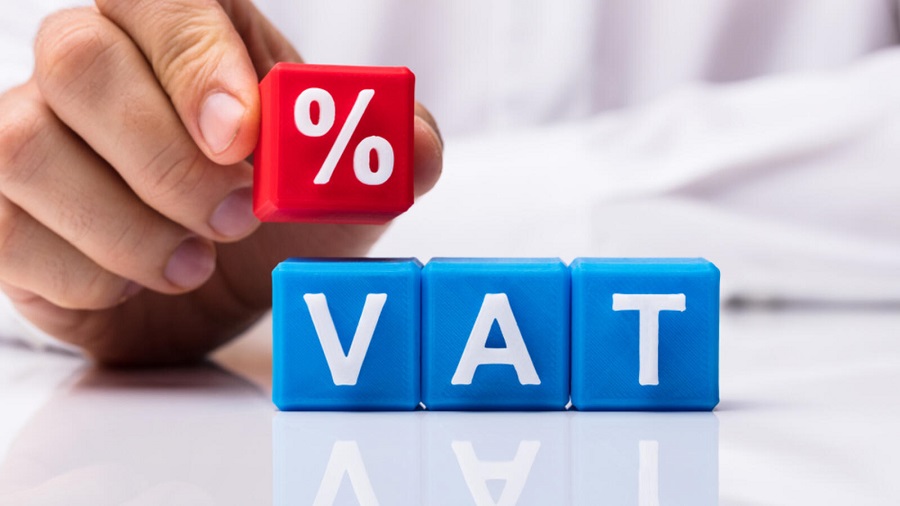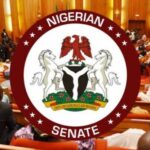In Greek mythology, Pandora’s Box was about the mythical Pandora who was given a box in care of her husband and was asked not to open it. But out of curiosity, she opened the box and out came all manner of affliction, pestilence and general disaffection.
Prometheus also a Greek mythical figure is said to be the one responsible for opening the mind of humans to the wonders of science and technology. He did so by disobeying orders not to reveal the secrets of progress which was exclusively retained by the Greek gods led by Zeus. For this he was punished but the damage had been done.
The debate on who between the federal government and states should collect the Value Added Tax (VAT) has been with us for quite some time. But it gained accelerated traction following the recent judgment by a Federal High Court in Rivers State which ruled that the right to collect VAT belonged to the states and not the federal government through the Federal Inland Revenue Service (FIRS).
Depending on how we look at it, it can both be a Pandora’s Box wherein we could find ourselves facing the negative consequences of the judgment if not well managed or it may well be the spur for dormant potentials of the various states to unbound leading to all round progress in the country.
But like most issues in the public domain, the VAT debate has become unnecessarily and unreasonably mired along the familiar North-South partisan rhetoric by political figures.
Lagos State has for long been on the frontlines of this debate griping about having to share the proceeds of the huge VAT generated therein with states that do not generate as much. But it is Governor Nyesom Wike of Rivers State whose habitual and decidedly pugnacious tone to the debate after the judgment that added a negative dimension to the issue. From his patently unreasonable and acidic statement about certain states, which was unbecoming of a person who occupies such a high office, the conclusion we draws is that he seeks the VAT more as measure to economically strangulate certain states than to use the judgment to better the finances of his state which is what the whole thing is about.
Mister Governor Wike, your approach is all wrong; the VAT issue is not about political and economic warfare which you are led to believe that because Rivers is an oil-producing state you have the liberty to talk down on other states that do not have it. VAT is about economic justice which states like yours deserve to have for the revenue generated in them and also about economic progress which states that do not measure up should be encouraged to do.
And in going about this we will need to be nuanced and reasonable bearing in mind that there are significant in-betweeners regarding the issue that need to be considered along the line.
To some the issue is about the long-canvassed return to the “fiscal federalism’’ of the independence constitution in which the existing regions were allowed to keep majority of the revenue they generate and remit a certain portion to the federal government. Implementing the new VAT regime will begin the process of comprehensive political and economic restructuring of the country.
Indeed the way to go is not just to stop at implementing the VAT regime as presently demanded by Lagos and Rivers states, we should go the whole hog and institute economic federalism along with it. Right now Lagos benefits disproportionately as the overwhelming economic entrepot for goods bound to the hinterland of Nigeria. It has been so since 1865 and has benefitted in many ways from favourable policies and infrastructural developments funded by succeeding governments from the national treasury to make it so. Along the line all kinds of businesses and services have sprung up to support and enhance the status of Lagos as Nigeria’s number one revenue earning state.
If Lagos wants to keep all that revenue to itself as demanded under the rubrics of economic federalism two things should happen; states must be allowed to compel service providers like telecoms companies, banks and financial services to pay VAT in situ at the point where the services are used, and secondly states must also be allowed to determine per costs and convenience which port(s) to use for their import-export. They should be allowed to negotiate and diversify the ports through which to import and export their goods and not be bound to importing through Lagos as currently obtains.
In this regard for instance Kano city as a commercial hub can decide to import and export through Cotonou, Algiers and Tripoli transhipping goods through these countries. Ditto for Maiduguri, which can import through Douala in Cameroon.
Just as Lagos has been favoured all through the years to the point where it has now become the major port and economic hub of Nigeria, the federal government should also provide enabling environment for the development of alternative sea and inland ports so that importers can have a choice of ports to import and export their goods. That way importers from the eastern axis can decide whether to import through nearby sea ports located in Port Harcourt, Calabar or inland ports in Warri and Onitsha. This will save the inconvenience and costs in transportation of goods from far away Lagos to inland destinations.
We should look at the debate on VAT as an opportunity to launch a big bang of economic diversification of the country freeing the latent potentials of the various states of the federation. We must ensure that just as the endowed and economically advantaged states are given the right to tap the revenues generated from their land, we must also create conditions that would also encourage the other less endowed states to also develop their economic capacities. The economic infrastructure from which Rivers and Lagos states are now claiming exclusive rights to the VAT generated in their respective domains were built from the national treasury. It does not make any sense for these states to now turn round and demand exclusively the revenues accruing from the operations of this infrastructure.
One of the factors militating against the economic growth of the country has been the rather lopsided structure of concentrating our economic activity in one tiny part of the country. It does not even favour Lagos in having to host the overwhelming burden of the economic activities generated in the country with all the attendant consequences manifesting in inadequate infrastructure and services. For economic and strategic reasons there is need to open up the economic potentials of the rest of the country so as to generate a huge pool of integrative economic activities for the ultimate benefit of the country.
The VAT debate should not be approached as a tool for political and financial warfare. If we allow it to take this trajectory, we risk it becoming a Pandora’s Box. We should rather see it as Prometheus unbound, as an enabler in freeing the economic potentials of the country.

 Join Daily Trust WhatsApp Community For Quick Access To News and Happenings Around You.
Join Daily Trust WhatsApp Community For Quick Access To News and Happenings Around You.


